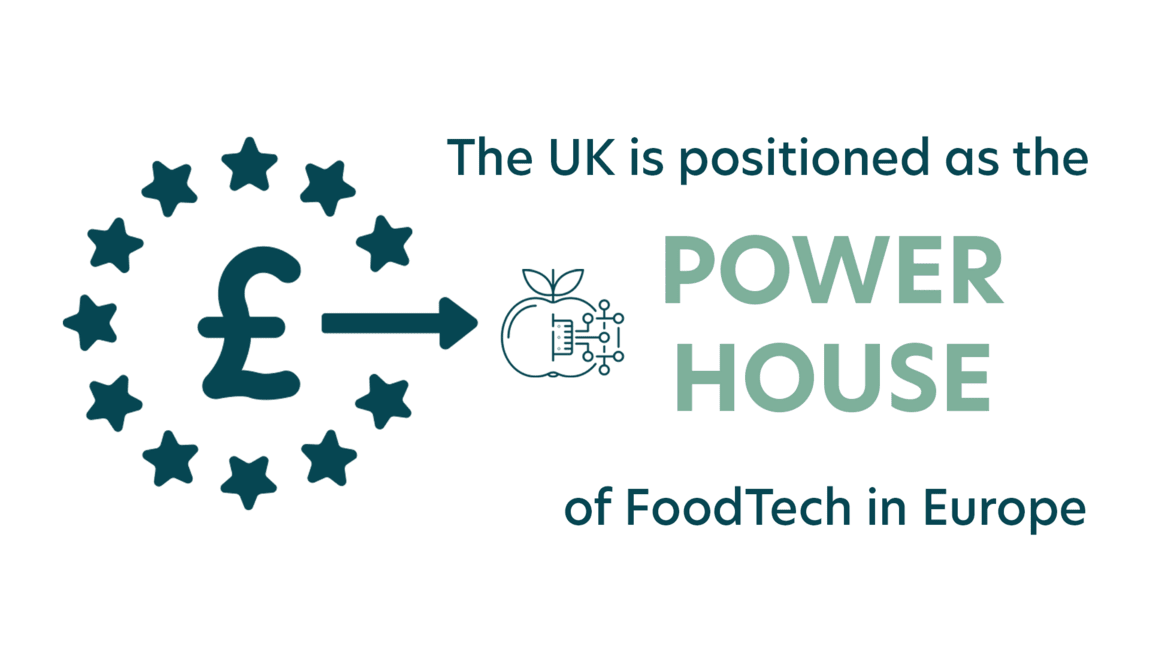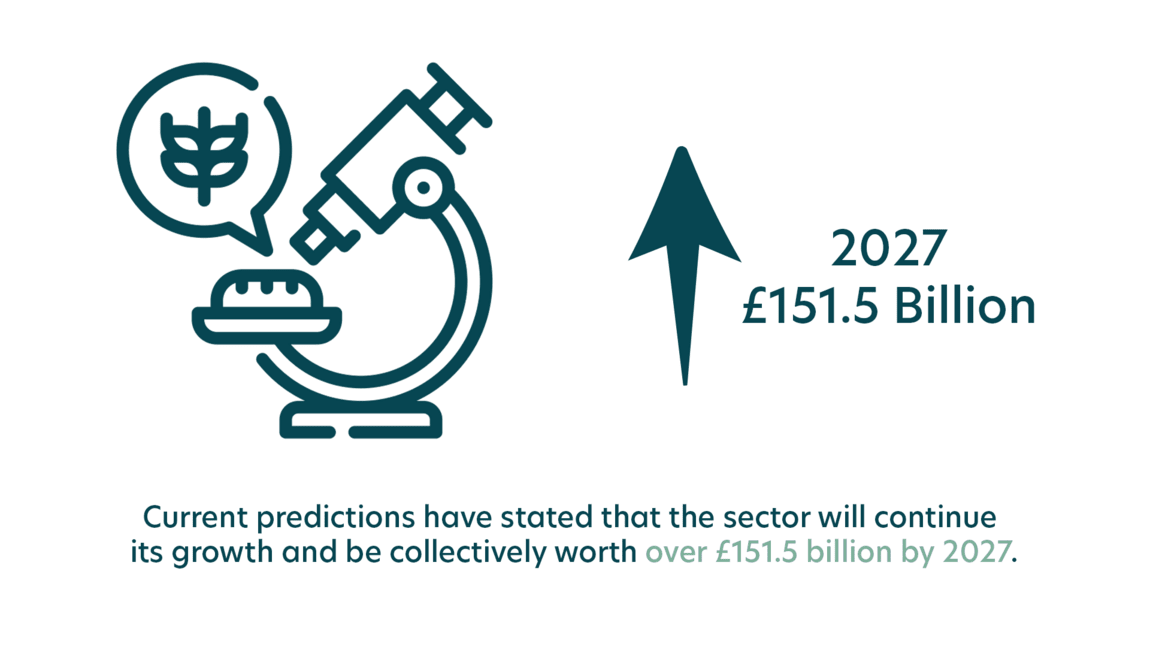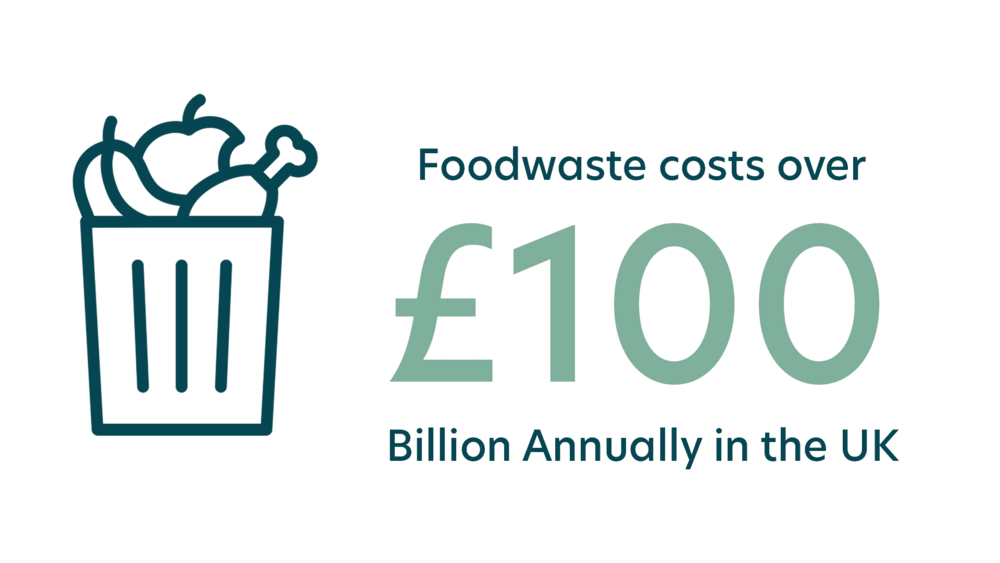
posted 31st January 2024
Over the last five years, FoodTech has had a meteoric rise. The rapid growth has already had a huge impact on the way that we produce, distribute, and consume food. The future of the sector is proving to be especially bright, as many believe that new technologies harness the potential to address major global challenges such as food security and climate change.
Defining FoodTech
The term 'FoodTech' simply refers to any form of technology that enhances or revolutionises the food industry. It covers a vast range of equipment used in the industry; from the machinery that harvests produce, right down to the digital platforms used to order food to your door.

What is fuelling FoodTech's growth?
There have been three main drivers for FoodTech; technology, investment, and consumer behaviour. All three have played an integral part in positioning the UK as the powerhouse of FoodTech in Europe.
Technological advancements have fuelled some of the most groundbreaking food innovations, such as lab-grown proteins and precision agriculture. Government support and investment initiatives have helped startups expand through funding the research and development processes involved with creating new technologies.
Consumers' relationship with their food has also evolved, which can in part be attributed to the rise of digital technology. With more information readily available, they are informed of the impact that their food has on their health as well as on the environment.

What does the future of FoodTech hold?
The last decade has been a highly transformative period for FoodTech. The continued technological advancements prove to be especially promising, as they harness the ability to create innovative solutions to issues plaguing the food industry. Current predictions have stated that the sector will continue its growth and be collectively worth over £151.5 billion by 2027.
Through thorough analysis of the current issues in the food industry, previous investments, and changes in consumer behaviour, we have identified three areas of FoodTech that we believe will have continued development.
Platforms providing greater accessibility to food
One of the most significant advancements in FoodTech has been the creation of digital platforms that make food more accessible, specifically food delivery platforms. Their appeal is that they are incredibly convenient. With one click you can access hundreds of culinary options and with minimal effort.
Meal-box delivery services, like Gousto, are also growing in popularity. Their service saves you time by planning your meals and delivering the exact quantities of ingredients to your front door. Gousto has proved particularly successful, having raised a staggering £321 million over 14 rounds of fundraising since 2012.
Consumers are drawn to applications that make their lives easier; whether that's saving them a trip to the supermarket or providing a ready-cooked meal to their door. We expect that platforms which aim to provide easier access to food, such as delivery platforms, will continue to soar.
Waste reducing technology
Finding innovative ways to reduce wastage is of the utmost importance. The food industry has significant issues with food waste which is estimated to cost the industry over £100 billion annually. Hospitality businesses have been flagged as highly wasteful, as kitchens are believed to throw away up to 20% of all food purchased.
Companies like Winnow help restaurants track, monitor and reduce their food waste by using smart technology and AI. Their technology ultimately saves restaurants money and increases their profit margins through waste reduction. Through seven fundraisings they have secured over £32.2million in investments.
Many FoodTech companies providing solutions to the industry's excessive waste problem have risen to prominence recently (we explore yet another example in the next section). However, Winnow's waste reduction technology specifically helps improve a company's bottom line. This is undeniably a point of interest for both restaurants and investors, and we predict more waste-reducing FoodTech to emerge as a result.
Sustainable food production
Soybean production is one of the leading causes of tropical deforestation and up to 75% of it is used for livestock feed. Finding an alternative to soy is becoming more urgent, as it will prevent further deforestation and slow the impact of climate change.
Better Origin is a fantastic example of a company that uses specialist FoodTech to produce soy substitutes. They use insect farming facilities to upcycle food waste and produce insect-based proteins which can be used in livestock and animal feed. The aim is to create a more localised and sustainable food supply chain, which in turn also reduces CO2 emissions by disrupting the importation of soy.
Their focus on sustainable farming has garnered a lot of financial support since opening in 2015. In total, they have raised over £15.3 million from private investments and grants.
Sustainable business practices are often among the criteria that a lot of investors use to assess a business'' suitability. We expect that sustainable business practices will continue to grow as the effects of climate change become more prominent.

If you would like to learn how to seek investment for your FoodTech business or how to raise funding, get in touch with the GS Verde Group. Our multidiscipline team can help guide you through every stage of the investment process.
Alternatively, you can find out more about buying or selling a business by visiting our Buy A Business or Sell A Business pages.













